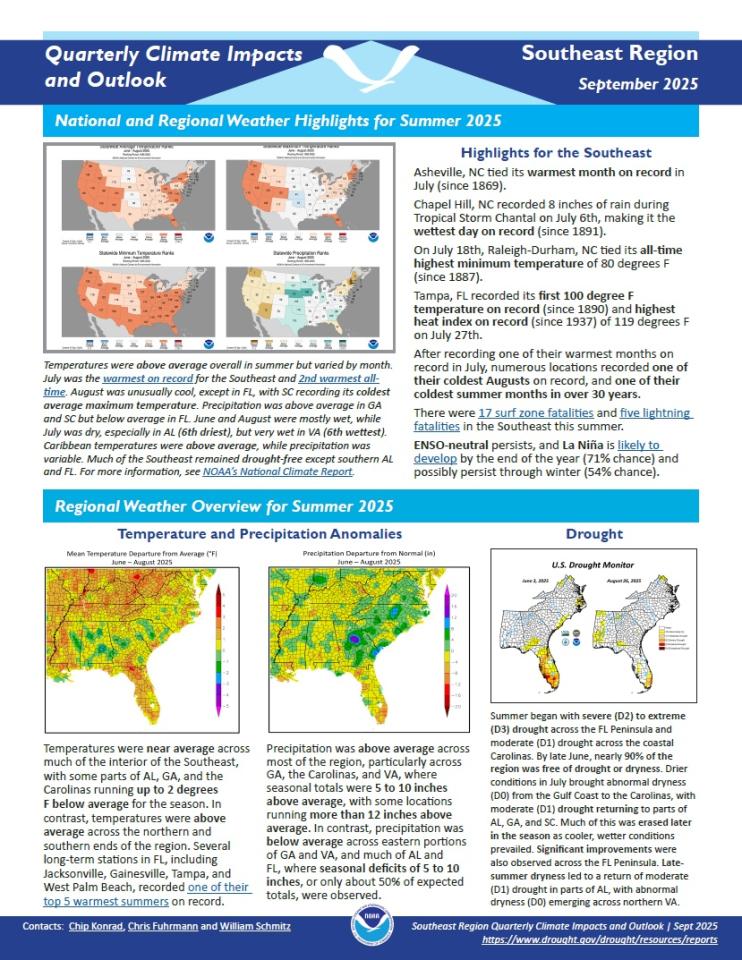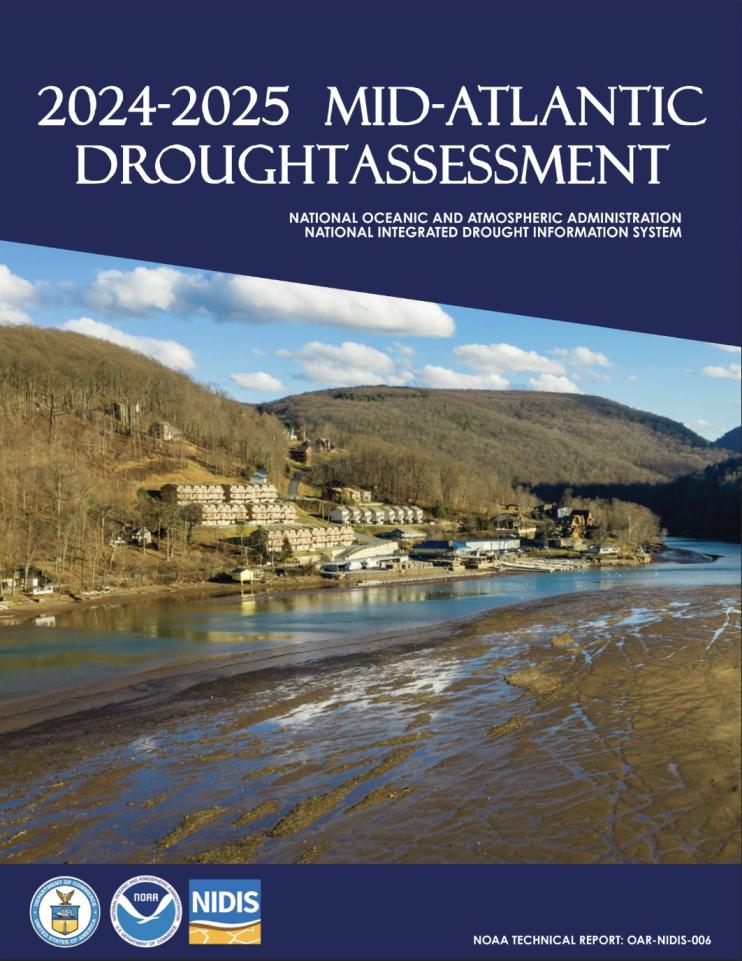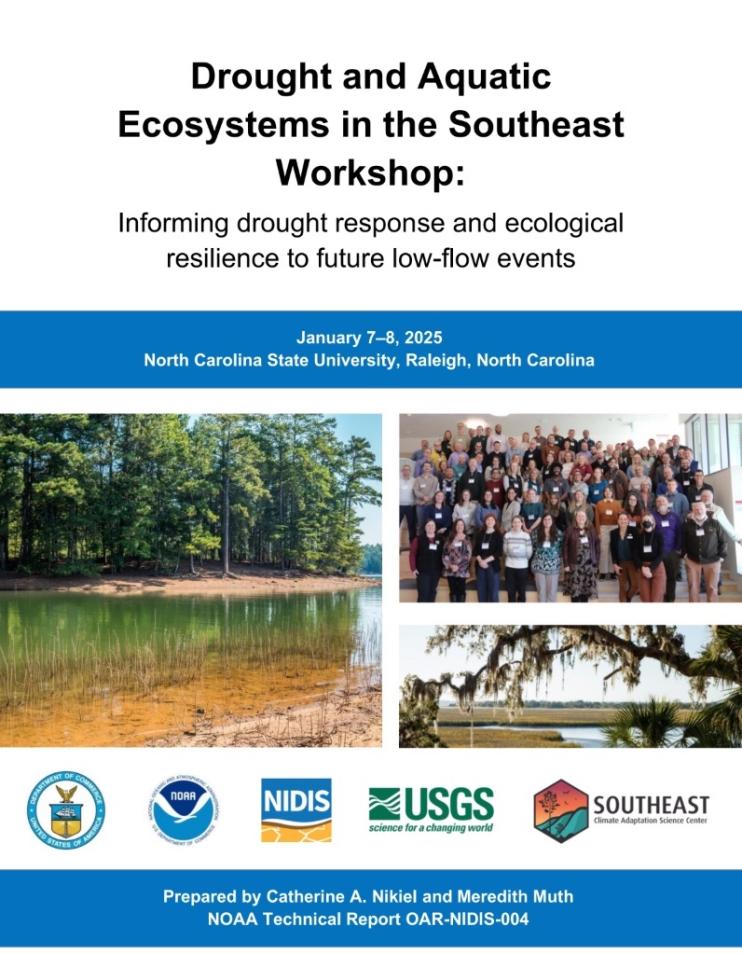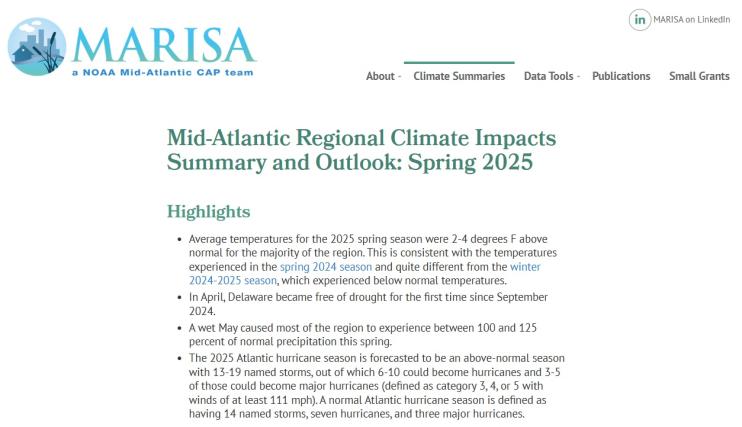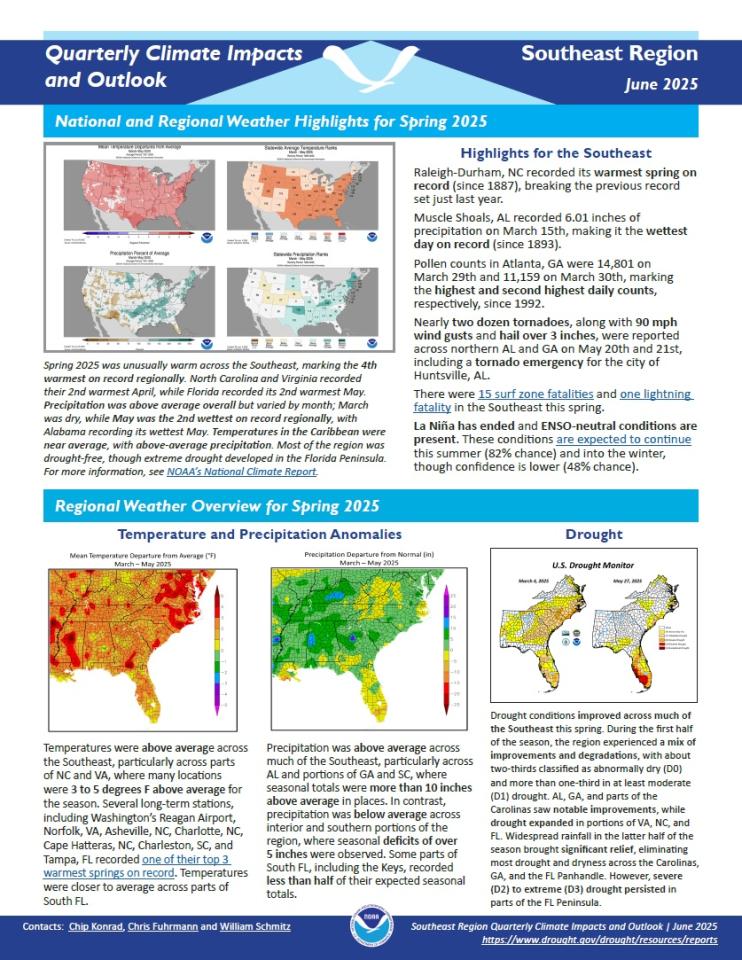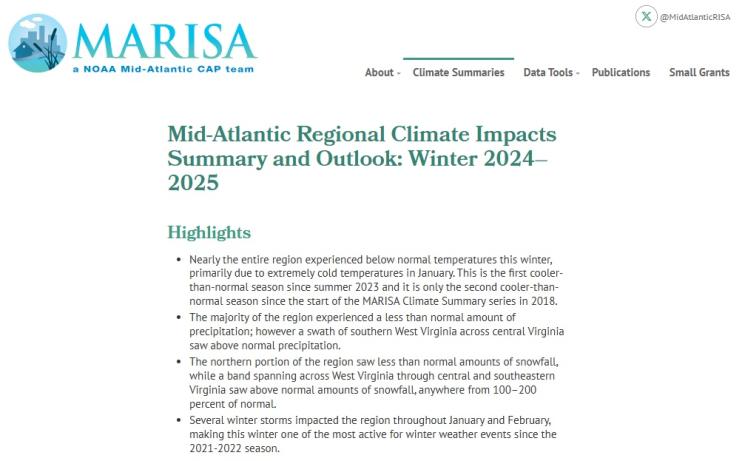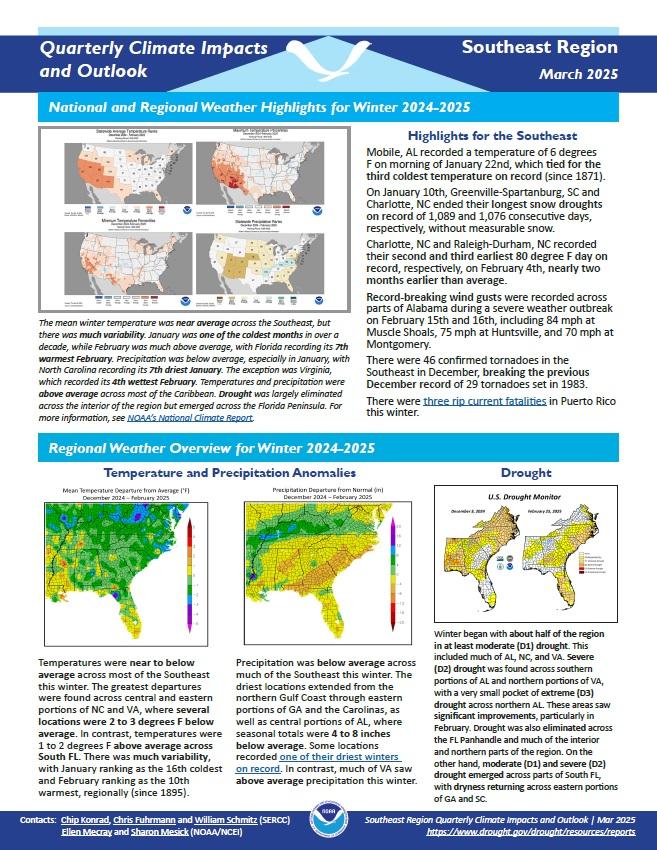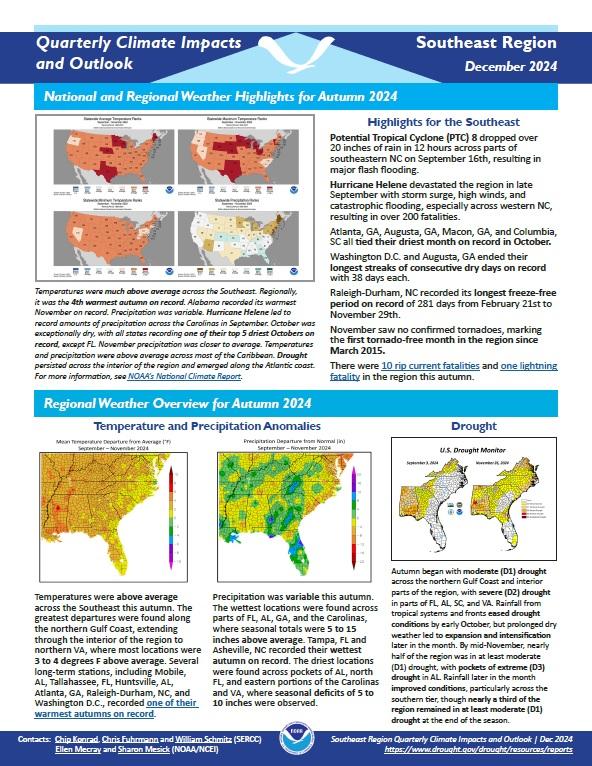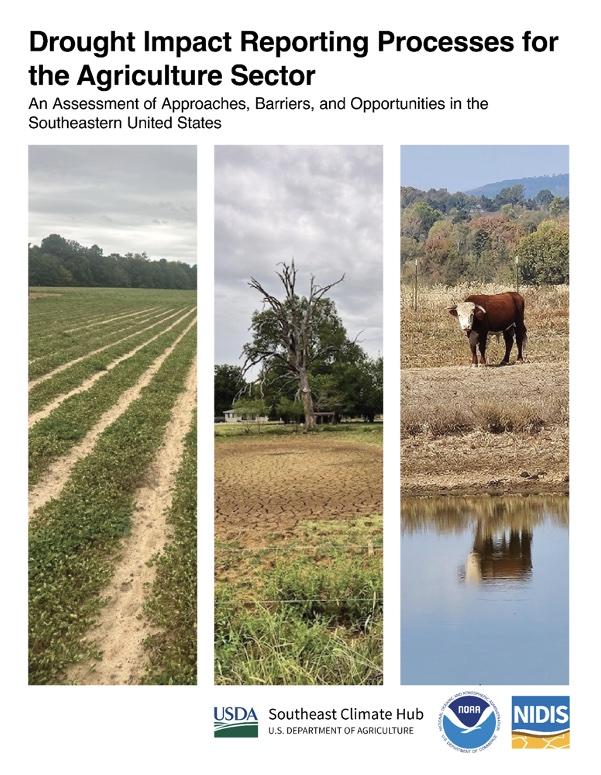For the latest forecasts and critical weather information, visit weather.gov.
Quarterly Climate Impacts and Outlook for the Southeast and Caribbean Region for June–August 2025. Dated September 2025.
Drought has occurred frequently in the Mid-Atlantic states over the past century. Major droughts occurred in the 1930s, 1940s, 1960s, and 1980s, with several lasting for more than a year. In 2024, heat and a lack of rainfall led to widespread drought across Delaware, Maryland, New Jersey, Pennsylvania, Virginia, West Virginia, and the District of Columbia. For some locations, the 2024 drought was the worst the region had experienced in more than two decades.
Given the broad interest and need to better understand and plan for ecological drought in the Southeast, the U.S. Geological Survey's Southeast Climate Adaptation Science Center and the National Oceanic and Atmospheric Administration's National Integrated Drought Information System (NIDIS), in support of the Southeast Drought Early Warning System, convened a 2-day workshop in January 2025. This workshop brought together scientists and managers from diverse fields, to address drought and low-flow in the Southeast and its impacts to aquatic systems across the region.
Quarterly Climate Impacts and Outlook for the Mid-Atlantic Region for March–May 2025. Dated June 2025.
Quarterly Climate Impacts and Outlook for the Southeast and Caribbean Region for March–May 2025. Dated June 2025. (Updated to add Spanish translation of Caribbean information.)
Temperatures were above average across the Southeast, particularly across parts of North Carolina and Virginia, where many locations were 3–5°F above average for the season. Precipitation was above average across much of the Southeast, particularly across Alabama and portions of Georgia and South Carolina, where seasonal totals were more than 10 inches above average in places.
Quarterly Climate Impacts and Outlook for the Mid-Atlantic Region for December 2024–February 2025. Dated March 2025.
Quarterly Climate Impacts and Outlook for the Southeast and Caribbean Region for December 2024–February 2025. Dated March 2025. (Updated April 2025 to add Spanish translation of Caribbean information.)
Quarterly Climate Impacts and Outlook for the Mid-Atlantic Region for September–November 2024. Dated December 2024.
Average temperatures for the 2024 fall season were 2-4 °F above normal for most of the Mid-Atlantic region. Eastern portions of the region received only 25%–50% of normal precipitation. Only portions of southern and western Virginia and southeastern West Virginia saw above-normal precipitation.
Quarterly Climate Impacts and Outlook for the Southeast and Caribbean Region for September–November 2024. Dated December 2024. (Updated January 2025 to add Spanish translation of Caribbean information.)
Despite the water-rich nature of the southeastern U.S., extended and intense dry periods intermittently occur across the region leading to reduced soil moisture levels and surface water supplies. These drought periods affect the landscape at different scales, with agriculture experiencing impacts earlier than other sectors


